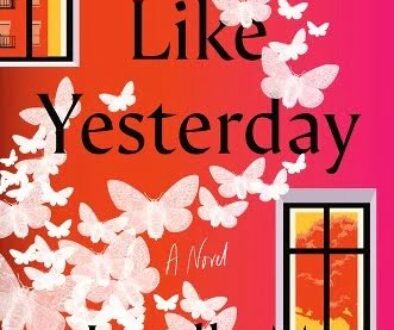The Plot Thickens: Malcolm and Me

Living in an age where movements like #OwnVoices mean increasing representation for BIPOC stories, Malcolm and Me is a historical fiction story that I would have appreciated as a young reader who rarely saw Black history on the shelves of my local library.
In Robin Farmer’s debut novel, we encounter Roberta, an eighth-grader in Philadelphia who finds herself revolutionized by The Autobiography of Malcolm X. The target of her revolt? A combative and racist nun who just so happens to be Roberta’s homeroom teacher, and Roberta’s mother who can’t quite seem to understand Roberta. Through the course of the story we see the ways in which watching her parents’ marriage fail moves Roberta to take out her emotions on others in destructive and self-righteous ways. As one of the few Black students at the private Catholic school that her parents sacrificed to get her admitted into, Roberta is greatly aware of how her high academic standing provides her access to classes that she rarely sees other Black students in, while also feeling trapped by this particular dynamic. As she learns more about Malcolm X, she draws more connections between the unfairness that she experiences — from no longer spending as much time as she is used to with her father because of her parents’ separation, to being kept out of the school’s writing contest that she longs to enter due to the after effects of her altercation with the racist Sister.
Thirteen is a tricky age, one in which we are often greeted with the knowledge that the world does not function in black and white, complete truth or falsity. As Roberta moves through the school year, we see her come to these realizations, prompting her to move from blaming her mother completely for her father moving out of their home, and making her question her understanding of the racist nun’s motives.
Roberta is a headstrong girl prone to making decisions based strictly on her personal perceptions and speaking disdainfully — or smart-mouthed as many adults tell her — to those who don’t agree with her reasoning. It is through her exploration of Malcolm X’s life that we see her consider the complexity of personal growth in ways that lead to her using her outspoken nature to push for change on the things that matter the most to her. Her declaration against all hypocrites — historical like Thomas Jefferson and present day to her 1973, President Nixon — means that she often makes observations of how the world doesn’t live up to her standards, even when on what should be on a basic field trip to the Liberty Bell. Instead, she reflects in melancholy that the bell must have cracked, not because it couldn’t bear the weight of hypocrisy, but because it couldn’t bear the tension between what America is supposed to be and what it actually is. In her contemplation of hypocrites, we see Roberta wrestle with who it is that she wants to be and how her anger is the mask to the sadness she feels for being disappointed by those she looks up to. Later in the book she admits, “It’s hard understanding that people can do great things and wrong things at the same time. That really messes with my head.” This is a testament to the crushing reality many of us go through as we realize that being human means to make mistakes that often affect our loved ones, even if we never set out to do so. It is a statement by a girl who has had part of her world crushed and is unsure about how to make sense of the wreckage.
Besides these poignant observations on the growing awareness of adulthood and the permeance of childhood pedestals, Malcolm and Me is a true historical fiction of a Black girl growing up in Philly during the 1970s. We hear about the joys of dancing to records and learning new dances from Soul Train, the rhythm and coordination it takes to jump double dutch with your girls at school, and even 70s colloquialisms like “as Scooby Doo would say, ru oh!” Reading this book reminded me so much about the stories I heard when I lived in Philly from lifelong Philadelphians who told me all about the wonders of Wanamaker’s and other landmarks that were no longer around when I lived there. Through this novel, Farmer has done a terrific job of showing that though times and lives frequently change, some experiences will always be the same.



